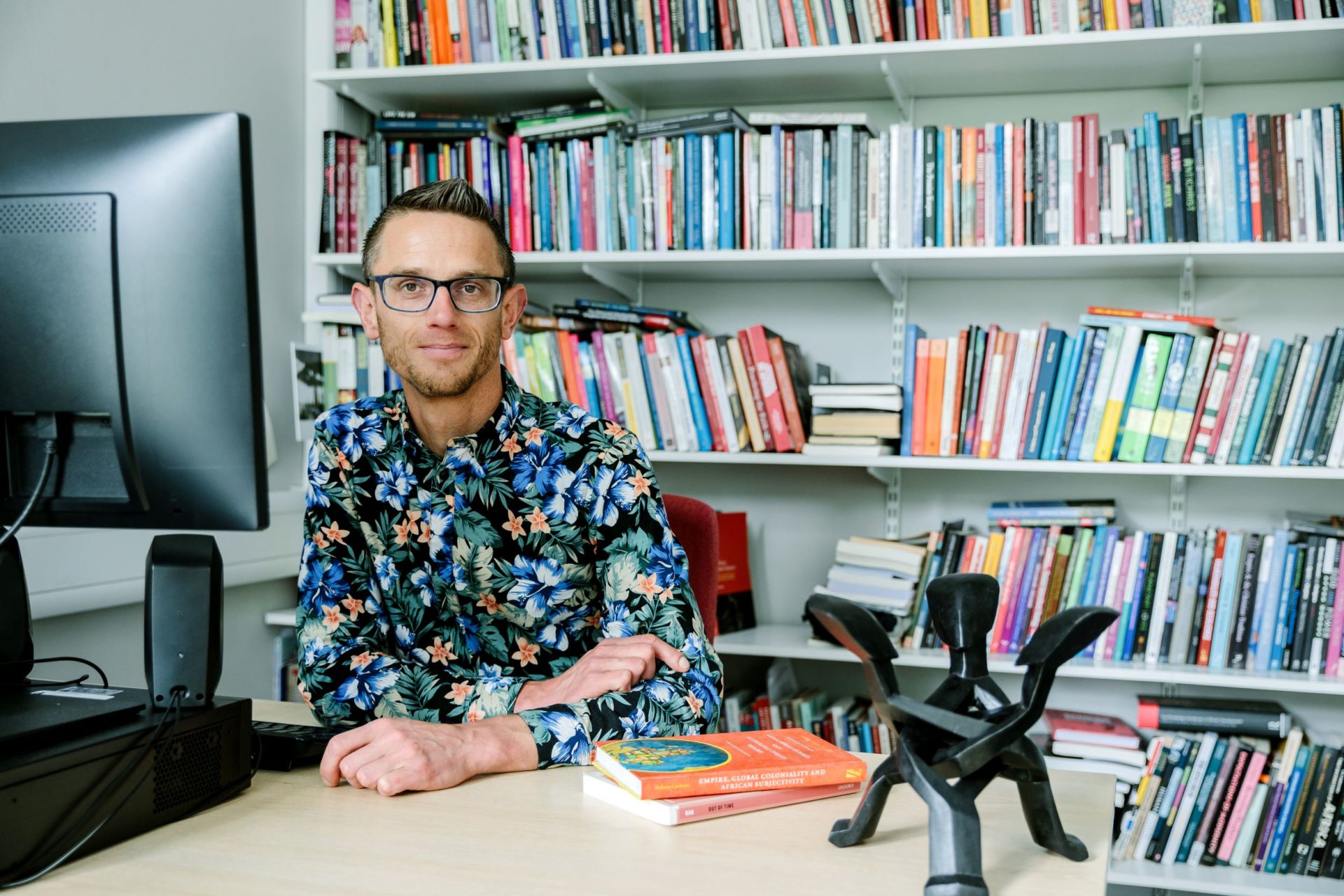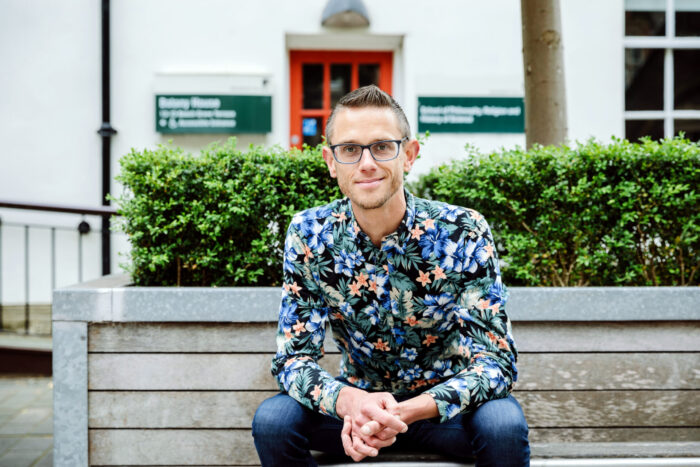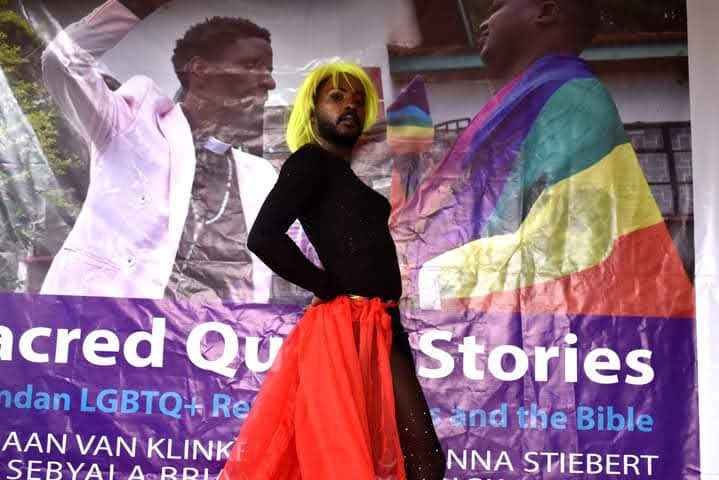Adriaan Van Klinken - Co-production Research Toolkit Case Study

Professor Adriaan van Klinken used life story methods, focus group discussions and community-based theatre with marginalised African LGBTQ communities that gave them ownership of their story, using reimagined biblical stories to share their life experiences within a safe community space.
Working with stigmatised and exiled communities
As part of the ‘Sacred Queer Stories’ project, Professor of Religion and African Studies Adriaan van Klinken has spent the past five years researching how LGBTQ groups engage with religion, working with community-based organisations facing a daily struggle to survive.
Coming into their Ugandan LGBTQ refugee community and asking them to take ownership of their own stories was crucial
‘Issues around sexual diversity have become very politicised in Africa,’ Adriaan explains. ‘Uganda passed an anti-homosexuality bill close to ten years ago, forcing many of the LGBTQ community to flee to neighbouring Kenya. Kenya is far from an ideal place for them to settle. Yet they remain refugees there while they go through the notoriously slow process of resettlement to third countries, such as the USA.’

Adriaan focussed on life story research methods where marginalised communities would be able to share their stories with a wider audience. This included methods such as day-long workshops facilitated by community members in spaces where they felt safe to share their stories with one another. ‘It was vital to give these people the chance to humanise themselves in a context where they are systemically dehumanised,’ Adriaan explains. ‘This activist method of telling others about their lives give them chance to co-produce their own narrative.’
Taking ownership of biblical stories to empower experiences
Religion and faith remain important for the LGBTQ refugee community. ‘I was struck by the way one particular group I was working with in Kenya came together informally every Sunday to pray, worship, and talk about the Bible,’ says Adriaan. Together, we developed a participatory approach allowing them to explore the intersections between their life experiences and Bible stories - and how this can be used to empower rather than persecute them.’
Adriaan began conducting life story interviews, where he asked participants what their favourite Bible story was and what it meant for them. ‘Daniel and the Lion’s Den was a story that really resonated with the community,’ Adriaan explains. ‘Daniel was a refuge himself, and they identified with him, particularly in the context of viewing the lion’s den as a metaphor for Uganda. The story became a mirror to reflect their own life experiences of struggle, hope, faith and support.

Enabling the community to share stories using their own creative methods
‘The community already used arts-based methods, such as drama and music, so we set a creative exercise to retell the story of Daniel and the Lion’s Den in their own context and dramatise it based on their experiences,’ says Adriaan. ‘They reimagined Daniel as a gay rights activist in Uganda, and reflected the anti-homosexuality bill in their story.’
Adriaan and his team knew it was important for the community to take ownership of the production. ‘We took a back seat and let their leaders facilitate the production,’ he explains. ‘They felt comfortable using their own drama and theatre methods to decide what kind of story they wanted to tell, and it was essential to afford them that autonomy and privilege.’
The performance was screened at the ‘Changing the Story International Film Festival’ in 2020 - hosted by colleagues at University of Leeds, and it won a platinum award. ‘This was a wonderful affirmation for the community,’ smiles Adriaan. ‘My team and I then published a book – Sacred Queer Stories – about their life stories and an analysis of our research processes, co-authored with two of the community leaders. We organised a day-long programme within the community to launch it through a celebration of dance, drama and drag. The level of ownership they felt over the project and its outcomes was incredibly powerful.
Facilitating co-production to support local sensitivities
‘I’d been building relationships with this particular community for five years, so there was already a level of trust before starting this research,’ says Adriaan. ‘It’s one of the reasons our co-production approach was successful. The community all have traumatic stories of stigmatisation, discrimination and marginalisation. Life is a constant struggle for survival for them, but we built the trust by working in a setting that was a familiar space, with facilitators they already knew, which gave them chance to open up about sensitive issues.’
‘The house where we held the sessions has a reputation for being a safe, joyful place with a strong sense of community identity’, Adriaan adds. ‘It was also their space, so they invited us along to be part of it rather than us imposing our presence. In the context of discrimination, this is key as the participants were happy to be part of the process. For many, it was therapeutic and quite life affirming.’
Using participatory approaches to foster relationships
Adriaan is critical of projects where academics with money arrive to work with marginalised communities to extract data. ‘They often bring a power dynamic where it’s clear who’s in charge,’ he says. ‘But what use is money without the support of a community? Naturally, it was known we had financial resources to help us design and plan projects. But we recognised from the beginning that the community itself had resources far more important than money, which were key to making the project a success, such as a network of participation and trust, and experience in dealing with the trauma of community members.’
‘Coming into their Ugandan LGBTQ refugee community and asking them to take ownership of their own stories was crucial,’ Adriaan concludes. ‘Mainstream society is not welcoming to many of these people; for example, those who are gender non-conforming cannot live authentically. Yet in their community, they can express themselves however they wish with total freedom. It was vital to produce the research by working with them in their space.’
